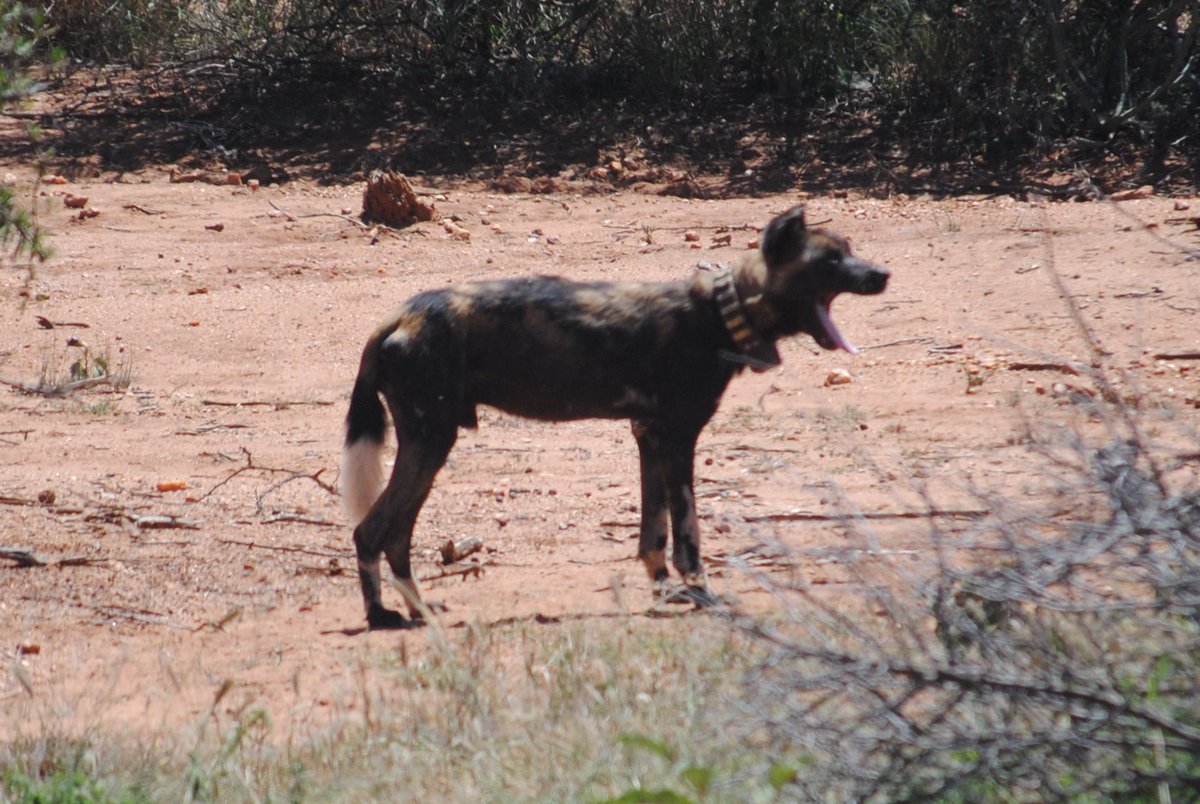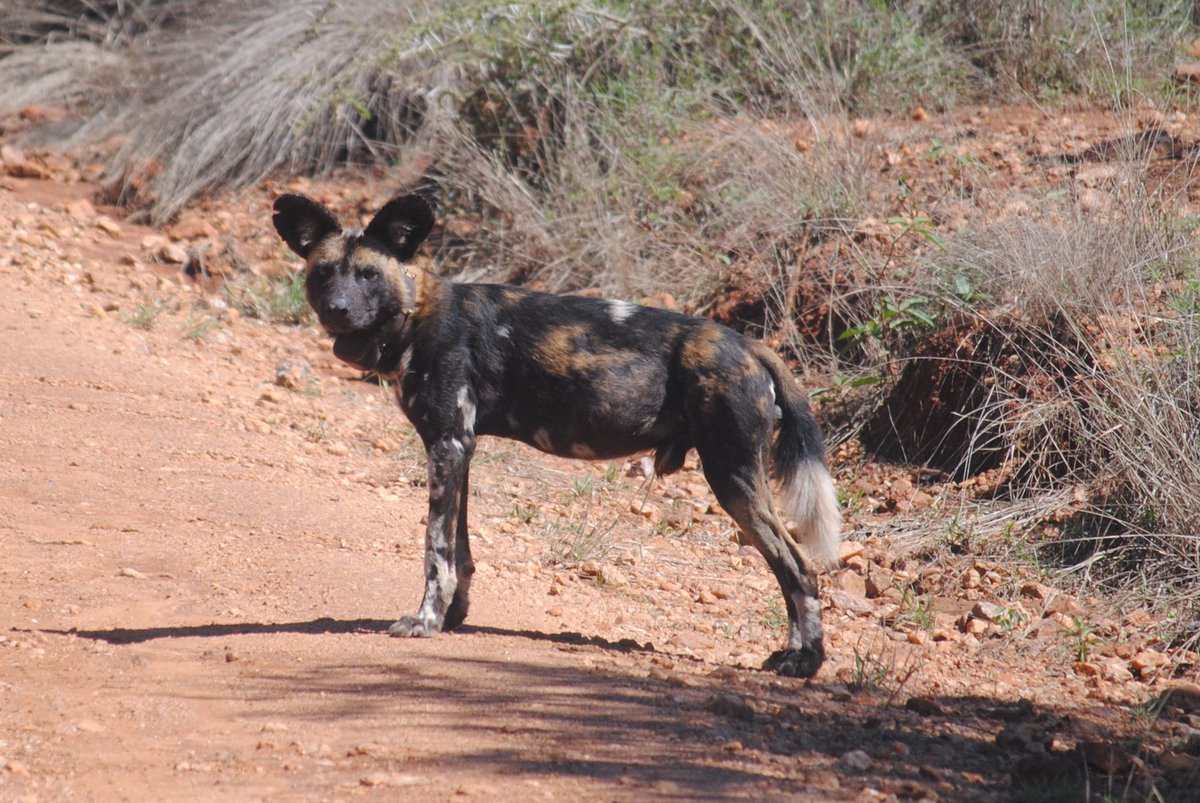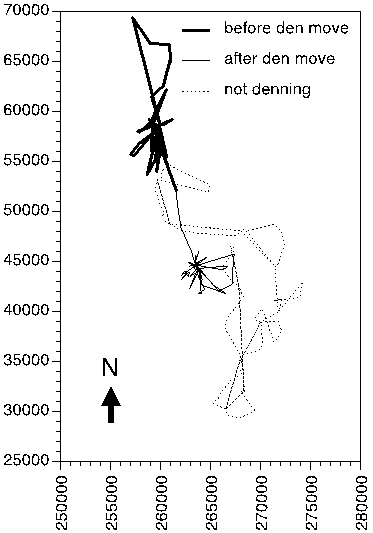The Kenya Rangelands project has been monitoring African wild dogs in the field for 18 years now!
I& #39;m going to talk a bit about how African wild dog populations are monitored in the field and what kind of data that gives us. https://twitter.com/realscientists/status/1253262759854292992">https://twitter.com/realscien...
I& #39;m going to talk a bit about how African wild dog populations are monitored in the field and what kind of data that gives us. https://twitter.com/realscientists/status/1253262759854292992">https://twitter.com/realscien...
Run - completed
Data entry - started
Lunch (grilled cheese) - monched
Now it& #39;s time for talking about science!
Data entry - started
Lunch (grilled cheese) - monched
Now it& #39;s time for talking about science!
So - how do you go about monitoring wild dogs?
The answer to that is radio collars - these are collars that transmit a sound over a particular radio signal.
Because wild dogs travel so far they are ridiculously hard to find without them.
The answer to that is radio collars - these are collars that transmit a sound over a particular radio signal.
Because wild dogs travel so far they are ridiculously hard to find without them.
Back in the day the dogs would be located by flying over in planes - but these days we use a combination of VHF collars and GPS collars - collars that send their location to satellites - and trusty 4x4s.
Using these collars the dogs can be located and monitored regularly - we collect data on things like pack sizes, whether the dogs are denning or not, if any individuals have dispersed or died, collect scat for dietary analysis, monitor who the dominant pair are etc
Generally we just get as much data as possible!
This can help us better understand the ecology of the animals, but also monitor threats like disease and human wildlife conflict.
This can help us better understand the ecology of the animals, but also monitor threats like disease and human wildlife conflict.
GPS collar locations give an added level of data - we can see what habitat the dogs are using, where they are going, and the unique star pattern of them returning to the den after hunts is a great way to pinpoint the exact date they started denning!
Recent questions we have been able to answer using this data include mortality rates, the impact of fencing, and getting new insights into dispersal behaviour, group dynamics and habitat selection in the species!
The GPS collars also have accelerometers on them - kindof like a wild dog fitbit - and these allow us to capture activity levels in the dogs.
You can read a bit more about how we use technology to do African wild dog research in this blog post by me and @hmk_oneill https://www.zsl.org/blogs/wild-science/a-dog%E2%80%99s-life-using-conservation-technology-to-monitor-african-wild-dogs">https://www.zsl.org/blogs/wil...
For a bunch of #teamwilddog and ex #teamwilddog people to follow:
@RosieWoodroffe - my PI and a super expert on all things wild dog
@Dedan_Ngatia - manages fieldwork side of things and is a new PhD student and @NatGeo explorer!
@RosieWoodroffe - my PI and a super expert on all things wild dog
@Dedan_Ngatia - manages fieldwork side of things and is a new PhD student and @NatGeo explorer!
@SGold231 - doing her PhD on rabies in African wild dogs + domestic dogs
@hmk_oneill - did her PhD on wild dogs, cheetahs, habitat connectivity and fencing in our group
@TomSmallwood1 - did his PhD on wild dogs + disease
@hmk_oneill - did her PhD on wild dogs, cheetahs, habitat connectivity and fencing in our group
@TomSmallwood1 - did his PhD on wild dogs + disease
@Lycaonpictus93 - did her Masters with us and is collaborating on our current project on African wild dog movement
@AndreaFuller06 - physiology expert
@lucaborger - expert in sticking biologgers onto animals
@AndreaFuller06 - physiology expert
@lucaborger - expert in sticking biologgers onto animals
This is just a small sample of our collaborators + partners - those who are more active on Twitter!

 Read on Twitter
Read on Twitter





